It’s that time of year again, everyone is making and eating a lot of great food, especially desserts! While eating all the yummy desserts out there, we can’t help but ask ourselves, Is sugar vegan?” and the answer isn’t as simple as a yes or no.
There’s no need to worry, though, because, by the end of this article, you will know exactly which brands of sugar are vegan and which aren’t. You may also learn a thing or two about the refining process that you didn’t already know.
Is Sugar Vegan?
At its core, yes, sugar is entirely vegan, whether it be made from sugarcane or beets. However, it is the refining process of white, brown, and powdered sugar that makes it non-vegan.
For years, refined sugars have been filtered using bone char from cows as the primary refining method. The bone char acts as a cheap and efficient way for the sugar to be filtered and whitened to the color we know and love. That said, it is by no means necessary for sugar to be filtered using bone char, but sugar companies insist on using it.
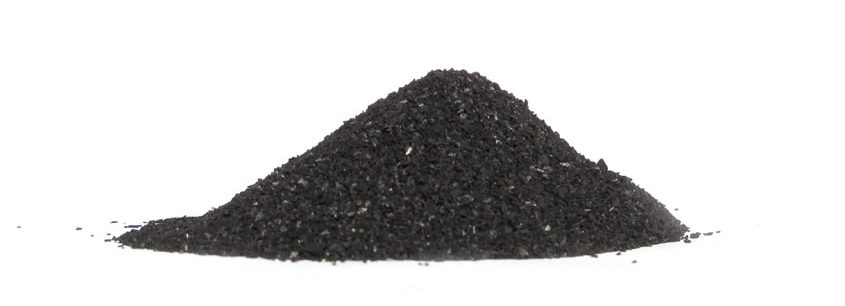
We have learned through organic sugars and beet sugar that refining actually isn’t necessary at all. Organic sugar is only minimally processed or not refined at all. This leaves it with a color that isn’t as white as you may be used to, but at least you know what you are getting.
Two brands, in particular, are extremely popular in supermarkets, but use bone char to refine their sugars – these brands are C & H and Domino. Many store brands buy from companies like C & H and Domino as well, so their sugars are most likely refined with bone char as well.
There is a misconception that if the label uses the words “raw”, “organic’, or “pure refined sugar”, that it is vegan, but unfortunately that’s no longer the case. However, this is no longer the case. You can no longer trust a label to be vegan if it states that it is pure refined sugar.
This is because companies are now allowed to say they are using “natural charcoal” when they’re, in fact, using bone char, which can make things seem a bit trickier and more frustrating when you are looking for the right vegan sugar for you.
It should be known that sugar is found in nearly all foods nowadays. Even something like protein powders, for it to be vegan, it needs to derive it’s protein through vegan means, and the sugar in the powder must be vegan as well.
Fear not, , it has actually never been easier to tell the difference between vegan sugar and non-vegan sugar.
What is vegan sugar made out of?
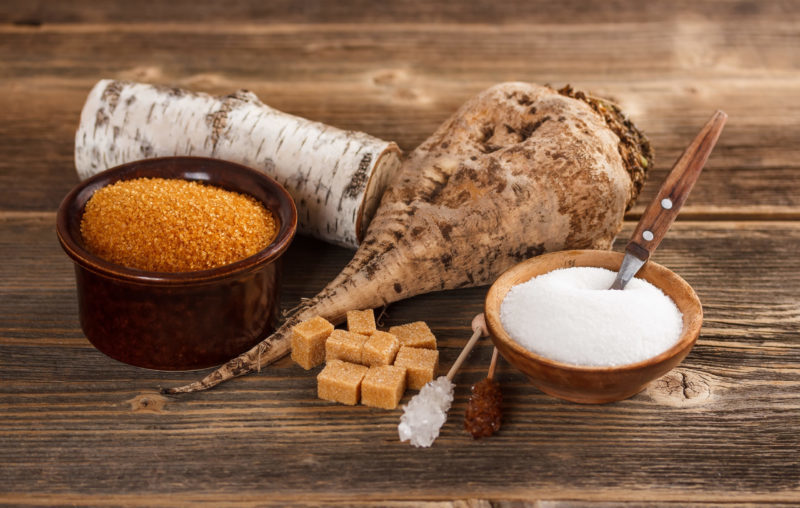
The question isn’t necessarily what is vegan sugar made of, but what is it made without? For sugar to be considered vegan, the only difference in the process is eliminating the bone char. In fact, organic sugar is either minimally processed or not refined at all. That is what makes organic sugar vegan-friendly. Bone char is not considered an organic product; therefore, when sugar is labeled organic, you know you are also buying vegan sugar.
Raw sugar yields the same results. Rather than using bone char to refine the sugar, it is pressed and mixed with lime to achieve the desired ph balance and settle the impurities. Neither raw nor organic sugar will be as white as pure sugar, but that is also how you know it is considered vegan sugar. Nine times out of ten, if you buy white sugar that is stark white, it is not vegan sugar.
With that being said, even if you have brown sugar, that does not mean it is vegan. Sugar in all colors can be refined, and if it is refined, it is no longer vegan.
The exception is beet sugar:
Beet sugar is relatively the same color as refined white cane sugar. However, it is easy to tell the difference on the label because it will read, “beet sugar” instead of “cane sugar.” Sugar beets are used in the manufacturing of beet sugar. The sugar beet plant is a root vegetable that is closely related to beetroot and chard. Aside from sugarcane, sugar beets are the most common plant used to produce white sugar.
So to summarize, if the sugar is white, and is not “beet sugar”, then you’re likely looking at a non-vegan sugar.
The way in which beet sugar is processed is also entirely vegan. So not only are organic and raw sugars vegan but so is beet sugar. The beets are processed through osmosis, where the sugar is extracted from thinly sliced layers of the sugar beet after it has been submerged in hot water. It is then filtered through a machine, and lime is added to reduce impurities and achieve the desired ph balance.
Options For Vegan Sugar
-
Organic Cane Sugar by Wholesome
-
Organic Cane Sugar by 365
-
Organic Cane Sugar by Trader Joe’s
-
Organic Cane Sugar by Woodstock
-
Beet Sugar by NOW Foods
The companies listed above are known for making organic and raw cane sugar, as well as beet sugar. These are all viable options for vegan sugar, whether it is white, brown, or powdered sugar. There is nothing left to fear from your sugar choices, and the guesswork is gone! Go confidently into your next vegan recipe with any of these vegan sugar companies. These aren’t your only options, though, especially if you are looking to be a bit healthier with your recipes.
Now, while it’s pretty easy to make your own vegan milk with a soy milk maker when it comes to sugar, it’s honestly much easier to simply buy vegan sugar, as opposed to growing sugar canes yourself.
Non-Vegan Sugar Brands
C & H and Domino are the most well-known brands for refined sugar. You can walk into any store and find an abundant supply on the shelves. These have been the go-to companies of choice for many years. However, with the growing vegan population and health-conscious individuals, more organic and raw sugar companies are gaining popularity as well. Because of this, C & H and Domino were forced to jump on board to stay with the market.
Both companies still sell their “pure refined sugar” that is entirely nonvegan and refined with bone char, as mentioned above. However, they each have started selling two new kinds of sugar that are certified vegan sugar. These two types are:
C & H Vegan Sugar:
Domino Vegan Sugar:
All in all, it is probably best to stick with smaller brands with a better track record for selling vegan sugar. Not to say, these two more substantial companies aren’t trustworthy, but sometimes smaller companies have a better understanding of how their sugar is made. Many larger companies just gravitate toward the cheapest option, which can lead to some corners getting cut, resulting in a product that isn’t entirely vegan.
To answer the question plainly:
Is C&H sugar vegan? No. In nearly all cases, if you are using the packets from a coffee shop or a fast food shop, you are very likely looking at the non-vegan sugar. It’s insantely uncommon to see C&H’s vegan sugar in a coffee shop.
Is Domino sugar vegan? No. Same as with C&H, the mass produced domino sugar packets in all coffee shops and restuarants are non-vegan. Best to stay away from C&D and Domino altogether when looking for sugar packets.
Three Vegan Alternatives to Sugar
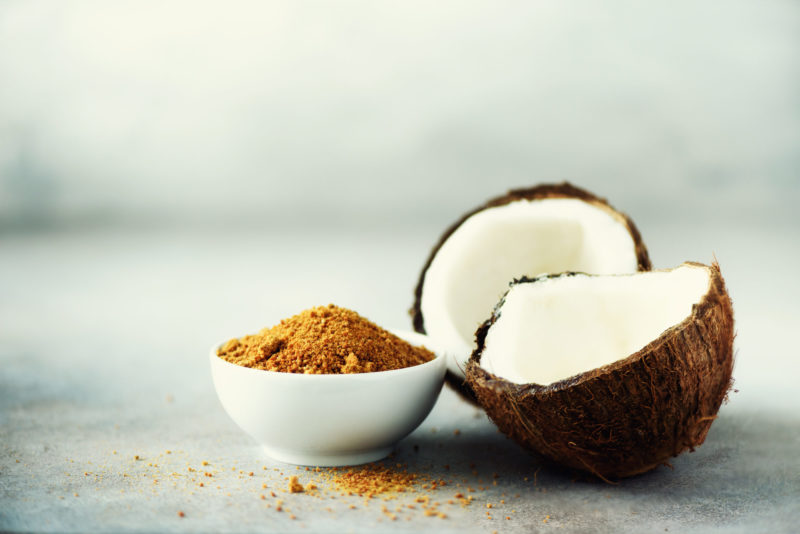
Sugar is by far the most common sweetener used in desserts and baking. However, it is not the only solution and by no means the healthiest option. There are many other forms of sweetener that are all vegan alternatives to sugar. Three of the most common types of this healthy vegan alternative to sugar are:
Replacing sugar in any recipe with one of these vegan alternatives is easy too, with a 1:1 ratio, you will have nothing to worry about. Even the taste difference is negligible. The ratio for stevia is a bit different, though, which I will explain in a moment.
Coconut Sugar:
Coconut sugar is a natural sugar made from coconut palm sap. It is derived from the coconut palm tree and is known for being a healthy alternative to vegan sugar that is also lower on the glycemic index. It’s also relatively easier to manufacture than vegan sugar, with only a two-step process. First, the flower of the coconut palm is cut, and the liquid sap is collected. Then the sap is placed under immense heat until most of the liquid has evaporated.
Unlike vegan cane sugar, coconut sugar actually holds some nutritious value. Some of the nutrients obtained from coconut sugar are iron, zinc, calcium, and potassium.
Date Sugar:
Dates are notorious for being high in potassium, iron, vitamin B and fiber. Not to mention its sweet taste is a perfect alternative to vegan cane sugar. Date sugar is actually just dehydrated dates that are chopped down to resemble sugar granules. This is one of the easiest ways to make sugar, and it is a nutritious alternative to the real thing. Instead of consuming “empty” calories, date sugar allows you to sweeten up a recipe while also adding nutrients to the dish.
Stevia:
Stevia is a more concentrated sweetener than coconut sugar and date sugar. If you are using stevia in a recipe instead of sugar, you will want to use significantly less to not overpower the recipe. It is made from a plant that is primarily grown in Brazil, Paraguay, Japan, and China and is a nutritious alternative to table sugar. It has actually been linked to significant health benefits in people with diabetes.
Whether you choose to use one of these alternatives or stick with organic or raw vegan cane sugar or beet sugar, you can rest assured that you now have the proper information on all of the vegan sugar options. The next time you are at the grocery store, simply look for sugar that is labeled “raw,” “organic,” or “beet” sugar. Not only will your meals potentially be a bit healthier, but you no longer have to worry if they’re vegan or not.
Well, you’ve come to the end of the article, and I hope that you’re not better informed as to what it takes for sugar to be vegan. If you a fellow vegan that struggles in finding the right vegan brands for you, I recommend reading our list of the best vegan meal delivery services. It’s honestly a fantastic way in introduing yourself to vegan products that you’ve never heard about but could end up loving. In addition, as the vegan population keeps rising, there has been an uptick for vegan dog food, and vegan cat food.
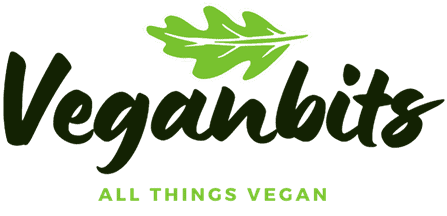
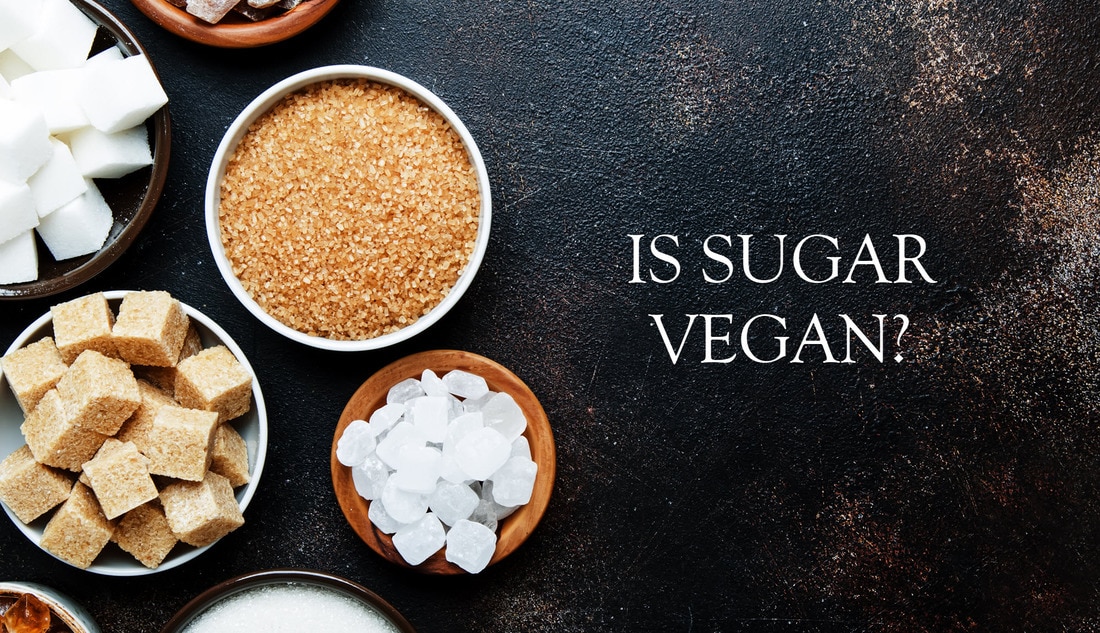
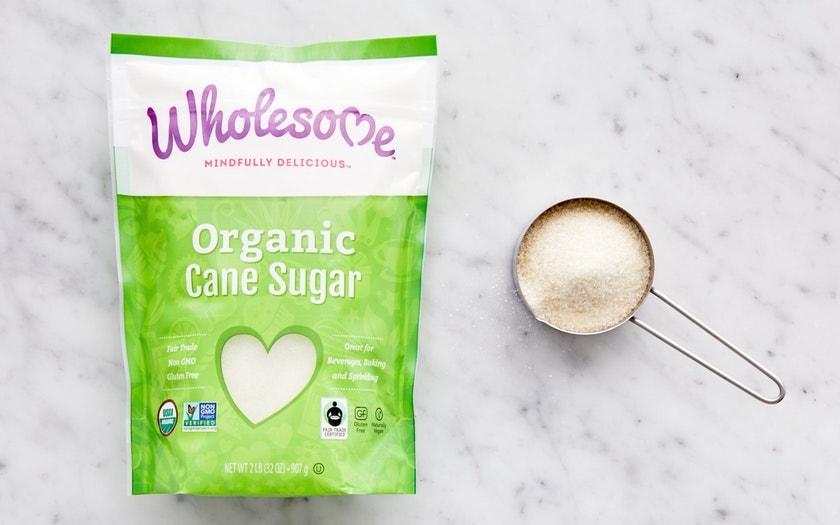
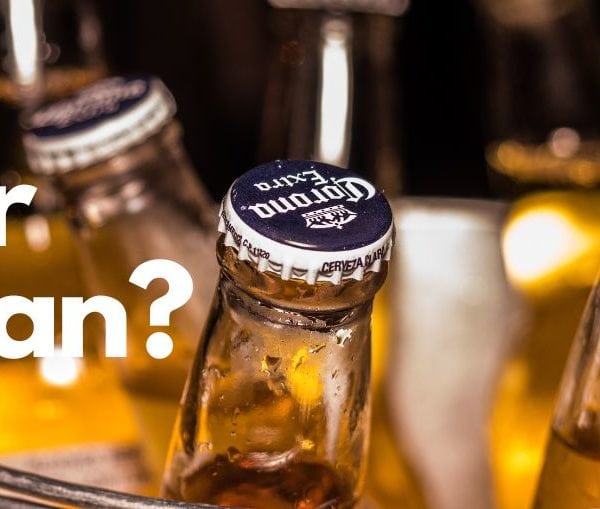
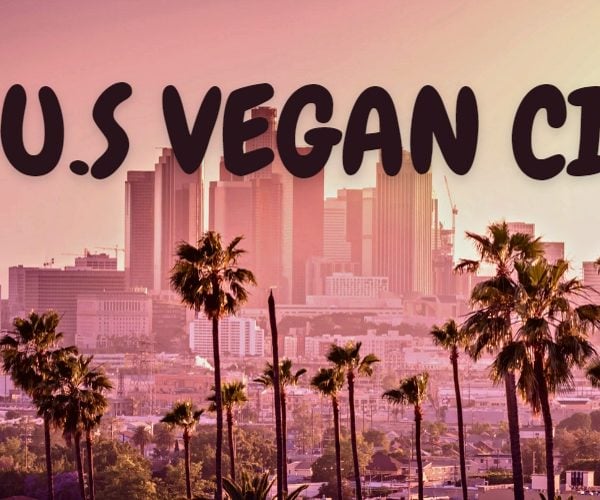
According to this PDF (which is from 2007 and may be outdated) some brands that generally use bone char have a few options where they don’t (e.g.: C&H’s organic sugar is listed as OK).
http://www.vrg.org/journal/vj2007issue4/VJ4_2007-Sugar.pdf
That is the clearest, finest, most thorough explanation of anything I have ever gotten in my life! lol
And I really appreciate the list of companies which sell Vegan sugar.
I was finding it very hard, at times, to get to the bottom of some companies ways and finally just threw up my hands in defeat.
Thank you
B)
PETA was charged with animal cruelty in 2005 when two of their employees lied to people about finding homes for their dogs and cats. PETA employees then euthanized the animals, including kittens and puppies, put the bodies in trashbags, and threw them into dumpsters behind groceries stores. I wouldn’t believe anything they say.
I avoid all so called products that come from the death of the animal just as I would if these “slaughterhouse by products” were composed of humans who had suffered a horrible death.
The bi-product argument is interesting and I had not thought about it much before, but it seems to miss a major point.
The bi-product of a horrible, horrible life is nothing that feels, to me, okay to use. The cotton that slaves provided, would be sold and much more, no matter what, so buying that cotton did not make for more slaves, Holocaust victims were killed no matter what, would you want one of the lampshades made out of the skin of the murdered from a German Camp?
–I am not saying I am right, just how I feel about bone char and the idea of bi-products, from what I can figure out, so don’t yell at me B)
addie
Hi SeitanSaid,
Thanks for the info. I’ve written C&H and have yet to receive a response. Will update the post when/if I do.
Hi Addie,
Glad you find it informative
Vegan Beware–
Yesterday I had those white Oreo’s, thanks to you!
Want my Dachshund:)
addie B)
Hi Tristan,
Thanks for the info on PETA. Personally, I’m not a supporter of their methods. More often than not I think their advertising has the adverse effect of their intent. But I still think their list of foods that are vegan is a valuable resource.
As I said in my post, we do our best to avoid animal byproducts. But I know that even if I ask my waitress, I’m not likely to find out if the products I’m ordering at a restaurant are truly vegan or otherwise. So I do my best, but I don’t make myself crazy.
Hi Addie,
First, we don’t yell here. You are entitled to your opinions. And you can even tell me I’m wrong…
Re by-products: Cotton was the primary crop, so reducing your consumption ultimately reduces the total consumption of the product. You vote with your wallet. I believe that by not eating meat, I am saving x amount of animals from death, simply because the demand is reduced. (I believe in the laws of supply and demand.) So buying cotton at that time would have kept up demand.
The holocaust victim lampshades are an extreme example of by-product, since those people were being slaughtered regardless of the quality of their skin, and most of the skins wound up being “thrown away.” And no, I would not by that, but I don’t buy leather either (not a byproduct). Perhaps over time I will feel differently about animal byproducts. Since it is taboo, and a crime to kill a human, but it is not to kill an animal, I can’t equate the two. I know plenty of people who can and do, and will tell me this doesn’t make me a true vegan. As I stated in my post, I believe that byproducts are used primarily because they are so inexpensive. Once animals are no longer slaughtered for food, those cheap by-products will become much more expensive and manufacturers will look to other, less expensive alternatives.
Lane–
When I first became Vegan I ate very little because I was afraid of making any mistakes. Very little. lol
I’m slowly learning to be more like you – not making myself nuts over every bite or byproducts. After all a person has to eat, right?
addie B)
Thanks for taking the time to post this. I had no idea there were all these kinds of sweeteners.
I’m printing the list for my next trip to Whole Foods.
Much appreciated!!
RE: PETA and the animals left in dumpsters – my understanding is these were animals pulled from kill shelters in South Carolina that were too ill to adopt out, and would have been killed by gas or gunshot. These workers were trying to provide them a more peaceful death. There has never been any evidence presented to the contrary.
Was it wrong to leave the bodies in a dumpster? Yes. Should PETA be involved personally with making these decisions about euthanasia and carrying it out themselves? I prefer they didn’t, since it provides fodder for such rhetoric as was posted here, and all around the net, that is used to discredit animal advocacy in general.
My anger doesn’t lie with PETA, but with the breeders who keep producing more animals for profit while animals are being killed every second in shelters and “owners” who don’t take responsibility for the animals in their care – disposing of them like garbage.
I don’t concern myself much with sugar. If I eat something processed and sweetened it’s generally of a better quality that doesn’t use recfined sugar anyway. Sugar in general should be avoided, although I know that’s hard!
Mary over at Animal Person http://www.animalperson.net/ has some recent entries about PF Changs and sugar – some really enlightening comments from readers included. I recommend checking those entries out.
Hi Addie,
Yes, first you’re so overly cautious about things. Once you get the hang of it, it seems that most people relax a bit.
Hi Marija,
Glad this was of use to you.
Hi Kim,
thanks for providing that info on PETA.
Yes, sometimes their methodology seems to be at odds with their mission!
Interesting info on PF Changs… It points to Jane’s continuing comment that if you are not preparing the food, you don’t really have much control. People either don’t know, are misinformed, or don’t care.
We try to be very specific when ordering, and hope for the best.
Actually PETA’s list is not reliable… if a food item contains less than 2.5% animal product or bi-product, PETA will in fact list it as being vegan. Conscious vegans need to look to a better and more honest source for vegan and cruelty-free food.
Like the whole Oreo debate… who cares if the ingredients in there are vegan or not.. for one they’re toxic, containing preservatives, secondly they are produced by the Nabisco Division of Kraft foods, which is certainly not a cruelty-free company…which in my book makes anything they make (animal ingredients or not) non-vegan.
I play it safe, if I don’t need it, I don’t eat it… who needs cookies and all that, really? If it doesn’t provide some sort of benefit why consume it? And if you really have a sweets craving, make it yourself so you know without any doubt what’s actually in it.
Everyone gets a choco-craving every once in a while.. nothing a few Vegan chocolate morsels can’t solve! And pure chocolate actually does have benefits! ^___^
Also something to consider, is food labeling legislation. In the United States, a company is not required to list an ingredient if it falls under 1% or 1g. Using Skim Milk as an example (no I don’t drink it..lol.). Skim Milk in the US says “Fat. 0g” or “Fat Free”, but in other countries where it is the law to list all ingredients and nutritional information, down to the last micron.. you’ll see it listed has having 0.5g of fat. Guess what… 0.5g is not a gram, so under US law, it doesn’t have to be included in the nutritional facts label.
Just something to consider. ^__^
Thanks for great post. Excellent commentary and info. I’m going to share with my readers. Just wrote post about JetBlue’s animal crackers. They used to offer ones that are seemingly vegan (Stauffer’s original animal crackers) if we assume that the sugar they use is vegan…an assumption really can’t make. They now offer Stauffer’s iced animal crackers which contain gelatin…clearly not vegan.
Hey Everyone,
I am a vegetarian (and have been for about 3 years) but recently made the discovery about some types of sugar, cheese, candy, and other foods that contain ingredients such as gelatin and rennet. Does anyone know of a reliable list that has products that are 100% vegetarian? Also, any good organic brands that are not owned by companies such as Kraft and Kellogg’s?
Additionally, I also highly disagree with the United States’ law that you only have to list an ingredient if more than 1% of the ingredient is in the product. We are likely eating these animal products in foods that we aren’t even aware of.
Thanks!
Kate–
What do YOU mean by 100% vegetarian food?
Here are four sites with food lists.
——–http://features.peta.org/VegetarianStarterKit/index.asp————–http://heartspring.net/list_of_vegetarian_protein_foods.html————the second site has eggs on its list, but off course that is meat————–http://www.suite101.com/content/top-10-vegetarian-snacks-a18790——————-http://www.peta.org/living/vegetarian-living/accidentally-vegan.aspx
Actually, I have read that all organic sugar is vegan/vegetarian. Check out this EXCELLENT multi-page article on the subject:
http://findarticles.com/p/articles/mi_m0FDE/is_4_26/ai_n27425782/?tag=content;col1
It’s called “Is Your Sugar Vegan?” and it was published in the Vegetarian Journal.
ORGANIC SUGAR: ALWAYS BONE CHAR-FREE
“The increasing popularity of organic foods in the United States has bolstered the production of the organic sugar industry. In fact, The VRG is happy to report that there is a large market niche for organic sweeteners.
To maintain its organic integrity, organic sugar is only minimally processed or not refined at all. Since bone char is not on the National Organic Program’s National List of Allowed and Prohibited Substances, certified USDA organic sugar cannot be filtered through bone char. In fact, the technical directors of both Imperial Sugar and American Sugar Refining told us that organic sugars are only milled and never go to the refinery where the bone char filters are located.”
As far as I am concerned, this makes things a LOT more simple! Let me know if anyone has heard anything contrary to this.
@ Kate
You are free to disagree. However, you would still be mistaken. (Also you misread what I said.. I didn’t say that US Law in regards to the 1%, I said that in regards to the PETA “Vegan List”) I in fact have a family member who works for the FDA, so I know the regulations on percentage inclusion and exclusion in foods in the United States.
And most items if it’s under 0.5 grams (0.5 does not equal 1% as percentage in food, it is not measured that way at all, percent only comes up when it’s that percentage of the food in it’s entirety, not the percentage of fat, sugar, etc by itself.), it does not have to be listed. The law is NOT saying they have to exclude it, the law says that they are allowed to exclude it.. some companies will put a fine print notice.. but it’s so small even someone like me with perfect vision needs to put the package pretty close to my face to see it.
In some cases you may see “* adds a negligible amount of…” on packages that they label as fat free, sugar free, etc.
Also I’ve been a vegan for 33 years (all my life), I know about hidden ingredients, be it their typical name or their scientific names. Besides, I rarely, if ever buy pre-made foods.. I was raised with my traditional Japanese culture, and women, we cook from ingredients, not boxes.. ^__^ Last pre-made food item I bought was some steamed cabbage buns made by monks from a local Buddhist temple where I live in the US. ^__^
Seems odd that you would “trust PETA to do the legwork.”
Sounds like an extremely unlikely prospect.
I’m sorry to spoil the fun but Oreos are not vegan. It’s time we stopped referring to them as such. Yes, their ingredients may not contain animal sources but it does contain palm oil. Palm oil is responsible for more orangutan destruction than any other human industry. An average of 20 per day are killed because they get in the way of harvesting. Veganism isn’t a diet; it’s a lifestyle–one of compassionate responsibility towards avoiding consumer products that directly harm animals. For more info, please visit saynotopalmoil dot com.
Please add sorghum to this useful list of sweeteners. I use it to replace honey and sometimes maple syrup in recipes. This recipe has nutrional and cost information at the bottom.. http://www.cookforgood.com/recipe/zesty-banana-pancakes-with-sorghum.html
Thanks Linda. We have added sorghum
Thanks Adrian for your info! I have been a strict (obsessive compulsive :) ) vegan for over 3 years now. I needed a biscuit-type vegan cookie for the base of a vegan recipe I wanted to make, but couldn’t find anything that remotely acted as a sugar biscuit that was vegan. So, I broke down and bought some Oreos. I never buy processed foods so this was a splurge for me and I am usually very good about reading the entire label but obviously missed this. However, I will never buy them again. I am opposed to the use of palm oil, and what worries me greatly is the fact it is hidden in so many products under different names (like dehydrogenated oil). I am sickened by what it is doing in the way of deforestation and killing the orangutangs. Thanks for the reminder!
I have in fact spoke with a representative from nabisco and oreo and they have replied to my emails ages ago. They said oreos do not have animal products, as far as bi products they could. But their sugar is NOT vegan, they do not claim oreos to be vegan and never have. She also stated that the oreos are made in a facility on equipment/machines that are also used to produce other products with animals.
besides oreos are not good for you anyway, they are processed junk food. eat whole natural foods and you will be more safe and healthy.
I would also recommend not eating kraft or nabisco as they use a corportation called symentex spelled incorrectly here, but those are the companies that use 14 week old male fetuses for taste enhancing properties. I dont know about you, but to me vegan is also NON-CANNIBAL.
well, at least for me it is. choose wisely, my dear friends. and keep up the good work.
God Bless!!!
p.s. adrian your post is wonderful!
Red path is vegan, in Canada. https://www.redpathsugar.com/faqs
Unless sugar beets are non-gmo or organic, sugar from sugar beets is not vegan, either. Sugar beets are genetically modified to contain fish genes. ?
I am a few years late here. FYI, Dominos sugar has a huge refinery in Yonkers, NY that does not process with bone char. All the sugar produced there is 100% vegan. Therefore, if you read the label of any Dominos sugar bag or container that has the Yonkers, NY address on it, then it is 100% vegan period. It doesn’t matter whether it is the pure cane, raw cane or regular white Dominos sugar. If it is produced at the Yonkers plant, then it is vegan. The large majority of Dominos sugar is produced at the Yonkers, NY plant. This has been fact checked by me (17 year vegan) and many other vegans. To summarize, the large majority of ALL Dominos sugar is vegan. Thank you.
Also, like Yonkers, NY, the Dominos plants in Florida and Maryland use the ion exchange method for processing. Therefore, practically ALL Dominos sugar is vegan. The reason I do this is because I don’t think veganism is a competition. I don’t want people to think veganism is more difficult than it is by spreading false information about products that are vegan. I encourage veganism.
As a side note, I do agree with boycotting palm oil and have done so to every extent possible for the last 14 years.
Peace and Vegan love to all!
The meal was absolutely delightful! Every bite was bursting with flavor. Check out this amazing recipe here.
Great breakdown of vegan sugar options! While it’s helpful to know which brands are vegan-friendly, I think it’s even better to choose naturally delicious snacks that don’t rely on processed sugar at all. That’s why I prefer Buc-ee’sBeaver Nuggets they’re packed with flavor, crunchy, and way more satisfying than sugary treats. If you’re looking for a tasty and better alternative, check them out.
Great article. Buc-ee’s is a popular travel center known for its massive convenience stores and a wide variety of freshly made food options. Their menu includes Texas-style BBQ sandwiches like brisket, pulled pork, turkey, and sausage, all smoked in-house. breakfast hours also offers fresh bakery items such as kolaches, fudge, cookies, and cinnamon rolls, along with breakfast tacos, burritos, and croissant sandwiches in the morning. Shoppers can enjoy a wide snack selection including Beaver Nuggets, jerky, trail mix, nuts, and fresh fruit cups. The drink options are extensive too, featuring fountain drinks, coffee, frozen beverages, and bottled drinks to keep travelers refreshed.
Great information. QuikTrip (QT) offers a wide variety of food and drink options, perfect for people on the go. Their menu includes fresh breakfast items like croissants, biscuits, and QT careers along with pizzas, pretzels, hot dogs, and roller grill snacks. They also serve made-to-order items from the QT Kitchen, such as sandwiches, tacos, flatbreads, and mac & cheese. For drinks, QT has fountain sodas, smoothies, hot and iced coffee, and frozen treats like Freezoni. You’ll also find baked goods, salads, wraps, chips, candy, and a large selection of grab-and-go snacks and beverages.